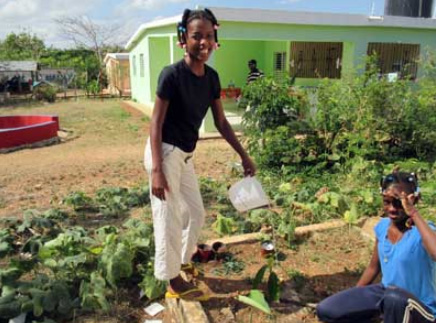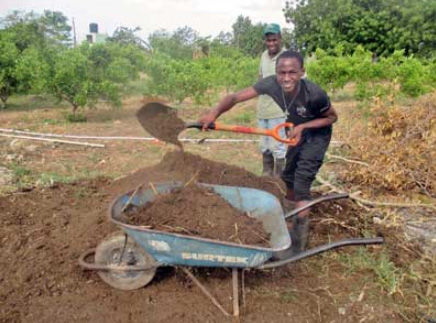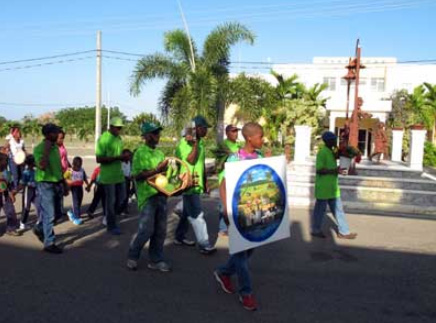Living Green, Living Wise
The children at NPH Dominican Republic are learning about food production processes, associated by-products and waste, and the consequences on our environment.
| Reported by Isabel Puchades Communication Officer, NPH Dominican Republic We are what we eat, and here at NPH DR we like all children to learn how to live healthily. We also strive for them to be aware of the food production processes, the byproducts and waste associated, and the consequences on our environment.Since 2010, our farm is 100% organic using no chemical fertilizers or pesticides, and we produce our own compost from fruit/vegetable peelings, dried grass and cow manure. Food scraps are also used to feed our eight pigs and piglets, eliminating the need to purchase commercial feed. Moreover, on some staple produce like yucca, bell peppers and green beans we are completely self-producing. We continually work on our varied green projects, which include education in the school (in form of educational workshops), involvement of the children in the farm chores, and garbage separation. Moreover, last year we started to gradually sell certain recycled materials, such as cardboard and plastic bottles, as the Dominican Republic becomes more involved in sustainability solutions. More recently, we are happy about two new achievements listed below. First, after an arrangement made two weeks ago, the city council has started to send a truck twice a week to pick up the part of non-recyclable waste. Before this was organized, one of our employees had to gather all this waste manually, and with the help of older pequeños took it personally to the local dumping site. Making the best out of this pickup, we also arranged for the truck to collect garbage from our neighboring community of Batey Nuevo. This improves its sanitation and the appearance of the surroundings since there is less spontaneous dumping now. Secondly, taking advantage of a small donation from the Bayer Foundation, we are starting to implement an irrigation system for an area of approximately 33,000 m2 for the cultivation of plantains, with the goal of providing the kitchen with 100% of their needs for this fruit. Step by step we are making more meaningful improvements in the management of our resources and the waste produced, which follows suit with our vision of responsibility towards the environment. Children are aware of these little successes. We hope this will inspire them to continue cooperating in these projects, and implementing sustainability and respect towards nature in their future lives. Related Information |
 Watering the mango tree
|









